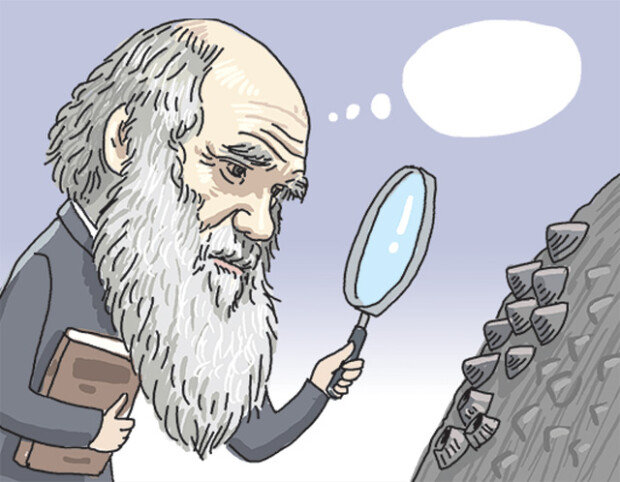Darwin’s hidden intention behind his study of barnacles
Darwin’s hidden intention behind his study of barnacles
Posted October. 12, 2020 07:49,
Updated October. 12, 2020 07:49

Barnacles are usually found around seashore rocks. They are about the size of nails, but their adhesive strength is so strong that kicking it would not take them off the rocks. They are seen everywhere in the world, but don’t have much use except for flavoring some food. But there is someone who studied barnacles for as long as eight years. Why did he study them for eight years?
But this person who seems to have had too much time on his hands was, surprisingly, Charles Darwin who suggested the theory of evolution. Darwin put eight years into the study of barnacles. Stephen Jay Gould, a renowned biologist, also studied barnacles. Moreover, the period from 1846 to 1854 when Darwin focused on studying barnacles was pretty close to 1859, the year when he published the Origin of Species which triggered tremendous controversies. Considering the fact that he contemplated on the concept of natural selection which is the essence of his book for some 20 years, he had his heart fixed on a rather odd topic in such important timing.
Did he tune out to refresh his mind? But the result is too extraordinary to think that he tuned out. Two books that he published in 1851 and 1854 are over 1,000 pages.
Then why did he study barnacles? Science writer David Qaummen said Darwin “cheated” for a reason in his book “Wild thoughts from wild places.” He says Darwin’s study of barnacles was preliminary work to present the theory of evolution.
Darwin lived in the Victoria era when people believed that God created the world. And he was not a well-known scholar. What would happen if someone who is not so renowned makes arguments that go against common sense? Would he receive applause? It is the opposite. Everyone would ignore and ostracize him. Profiles and qualifications are prioritized over theories themselves. Darwin knew this all along, which was why he waited some 20 years until he finally presented the theory of natural selection. He published his theory right after Alfred Russel Wallace sent him a letter that said he had the same belief.
It seems that Darwin who was not so social crafted a strategy. He tried to earn trust of the academia through a project on barnacles. His strategy was effective. Even though it was only a small number of people, but people started to agree with him after he published the book. Gould says Darwin deliberately missed out clear evidence of evolution he discovered in the process of studying barnacles. He waited for the right timing. Gould calls it “darwin’s delay,” which means he endured for the future.
Were the eight years of studying barnacles fun for Darwin? It could have been boring and dull. But Darwin was able to achieve a great work because he endured it and prepared for the future. That is how things are done. Achieving something in studies, techniques and businesses requires perseverance which is enduring boring and dull processes and laying a foundation.




![“잠만 자면 입이 바싹바싹”…잠들기 전에 이것 체크해야 [알쓸톡]](https://dimg.donga.com/c/138/175/90/1/wps/NEWS/IMAGE/2026/02/23/133404749.3.jpg)


